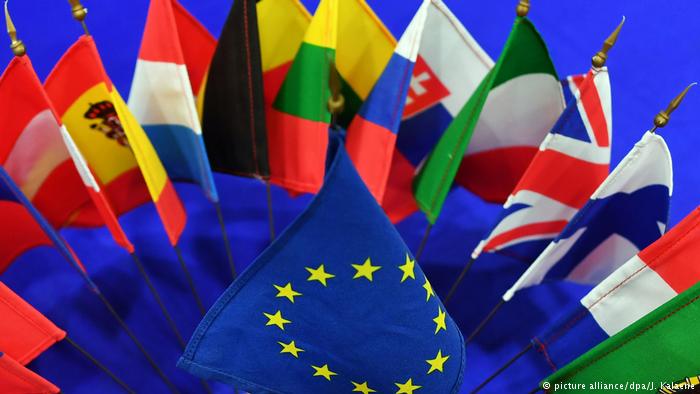Would a free trade agreement with the US be of interest to Mozambique?
Economic partnership agreement signed between Mozambique and the EU

DW
The Mozambican authorities are stressing the importance for the country’s economic development of a 10-year economic partnership agreement to be signed with the European Union.
According to Kaluwa Bergamota, private sector and trade lead in the European Union delegation in Mozambique, “the agreement aims to expand trade, attract investment, open up more opportunities for the private sector and create jobs”.
Bergamota said that the agreement would also ensure a stable and predictable regime for trade. The agreement guarantees duty-free and unlimited quantity access to the European market for all goods exported from Mozambique except arms and weaponry.
Amílcar Arone, National Foreign Trade Director of Mozambique was also enthusiastic.
“The economic partnership agreement is a legal instrument compatible with the rules of the World Trade Union and is based on the principles of development, differentiation, asymmetries and regionalism” he said.
Arone stressed that the Economic Partnership Agreement had a development component as well as a commercial one, with technical assistance provided to help Mozambique improve the quality of its products and comply with EU requirements.
“Currently, many of our products do not meet the requirements of the European market,” he explained.
Increase in exports and improvements in the trade balance
A further benefit was that the agreement would boost exports, improving the trade balance, at a time when Mozambique imports more than it exports to the European market, Arone explained.
Bergamota said the economic partnership agreement would allow “the private sector to invest with a long-term vision in a stable framework for trade”.

In addition to Mozambique, South Africa, Botswana, Lesotho, Namibia and Swaziland will also benefit from the export agreement.
Negotiations between EU and regional organisations
The European Union has been negotiating Economic Partnership Agreements (EPAs) with four separate regional blocs: Southern Africa (SADC), West Africa (ECOWAS), Central Africa (CEMAC) and East Africa for several years.
The deadline initially set for concluding the negotiations was December 2007, coinciding with the EU-Africa Summit in Lisbon, but several countries objected to the agreements, arguing that duty-free access for European products to African countries would hamper the development of the African economies and forcing Brussels to extend negotiations.
The European Union recently signed an EPA with Botswana, Lesotho and Swaziland.

The EPAs will replace preferential trade regimes between the EU and African states, which were considered contrary to the current international regulations by the World Trade Organisation.
In 2008, the main exports to the EU from Botswana, Lesotho, Mozambique and Swaziland were aluminium, diamonds, sugar, beef and fish, while the main EU exports to these African countries were machinery, fertilisers and vehicles.
Under this partnership, aluminium accounted for 84 percent of Mozambican exports to the EU, tobacco 9 percent, and fish 4.4 percent.
EU products accounted for about 20 percent of Mozambique’s total imports – mainly industrial products.
“The SADC region has been the largest beneficiary of trade with the EU to date and the EPA will enable the region to improve competitiveness, diversify its exports and build strong regional cooperation networks in support of those that currently exist or are being developed,” a statement from the European Commission sent to the Lusa news agency in Maputo reads.












Leave a Reply
Be the First to Comment!
You must be logged in to post a comment.
You must be logged in to post a comment.